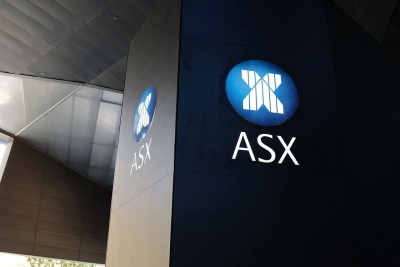Weekly market update
Written and accurate as at: Apr 24, 2018 Current Stats & Facts

The local sharemarket gained roughly 1% last week and is now 2% higher over the month. The move has been led by Resources, which has more than offset a drag from Financials that have suffered on the back of the banking Royal Commission.
In the macro space, US bond yields have broken higher and look set to test the top of a downtrend area. The US Dollar is also stronger, which has put pressure on the AUD/USD and is now trading near the bottom end of a range. Meanwhile, crude oil continues to rally with Brent rising 2% for the week to finish at $74.
Stock-wise, headlines were dominated by the fallout from the Royal Commission. However, the worst performer was fund manager, Perpetual (PPT), which fell over 12% due to very poor FUM flows. AMP (AMP) was not far behind with a 10% decline. Also in Financials, Bank of Queensland (BOQ) suffered a 6% drop after its result was released. The regionals have struggled with increased costs of funding, which has been a broader issue for the sector in recent months and is a difficult problem to solve.
Others at the more negative end of the spectrum included TPG (TPM) and Domino’s (DMP) which dipped 6% and 5% respectively. Clydesdale Bank (CYB) fell 5% as its UK-based owner revealed a provisions top-up of roughly 200 million pounds. The amount is approximately 8% of the company’s value and will cover a large set of potential outcomes. The one-off charge was well-considered by the market and the stock reacted reasonably.
Rounding out the more noteworthy underperformers were Bendigo Bank (BEN), IOOF (IFL) and Computershare (CPU) which all fell ~4%. IOOF’s drop was tied to broader regulatory concerns, while CPU held its strategy day with no new major information.
At the other end of the market, alumina plays performed strongly from the twin effects of production cuts in Brazil and US sanctions targeted at Russian producer Rusal. Aluminium prices have surged in response. The market has also been assessing the impact of sanctions on other commodity niches. The miners have benefited from the developments with South 32 (S32) up by 13%, BHP (BHP) firmer by 4% and Iluka (ILU) higher by 3%. Steel producer BlueScope (BSL, +5%) also rallied on improving sentiment towards a China trade deal with the US. ALS (ALQ), which provides testing services to the miners, rallied 6% on its link to improved exploration prospects.
Beyond the Materials sector, Aristocrat (ALL) gained 6% after slot surveys indicated an increase in its US share. Further developments for the gaming giant should be revealed at its strategy day in one and a half weeks. Energy stocks also rallied with Woodside (WPL) finishing 4% higher for the week.
Turning to the Royal Commission into banking misconduct, beyond the headlines and emotional responses, the issues with AMP are worth examining in more detail. Overall, the concerns around advice look and sound quite negative, but they are arguably well known by now. However, what has been brought to light about management’s lack of disclosure when some of the wrongdoing first became apparent has surprised many and caused yet more reputational damage. As a result the market is now anticipating further regulatory focus on the industry, which saw AMP’s share price slide significantly last week. The big potential risk for AMP among others is that platform fees will come under increased scrutiny and face further downward pressure. We are at an interesting juncture – the sector does face a lot of challenges, but importantly there is also some sense that we are at the nadir of negative news – which is when share prices overreact.
There is no doubt that that the market is anticipating further change at AMP. With such a diverse range of operations including its New Zealand business, AMP Capital, its banking arm, life insurance, platform and advice, there is certainly ample potential for things to change in terms of corporate structure. Calls for a more assertive leadership are also likely to intensify.
The big four banks have suffered a much less significant pullback as their advice exposure is far lower and share prices are bouncing around recent lows. Seasonally, the banks also tend to receive some support around this period. The big issue facing the sector is how advice will be conducted in Australia in the future. This won’t be overcome by new management.
The challenge for policymakers is implementing measures that address issues in the banking sector, but also do not significantly slow lending. Also on the policy front, there is likely to be a large long-term fallout for ASIC, which has now suffered significant reputational damage. The Royal Commission has revealed the regulator was not performing its role optimally, which prompts a bigger question about oversight. In addition to better consumer outcomes, one potential positive from the process is likely to be a more formulated and considered policy response, rather than a knee-jerk quick fix.










